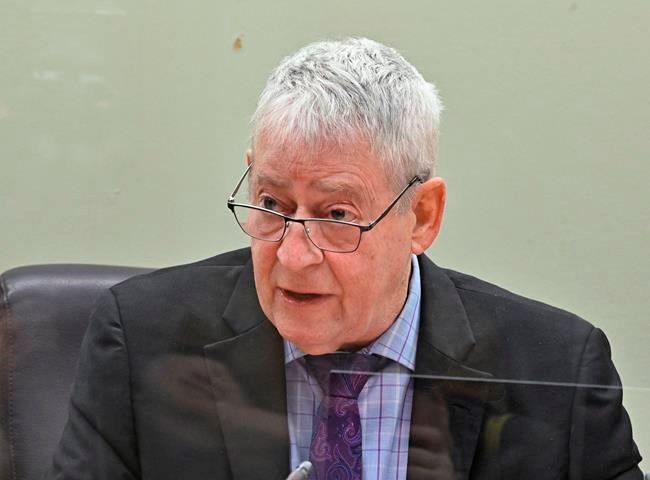MONTREAL — A coroner's report into the 2017 death of a man killed by Montreal police says officers put themselves in danger and provoked the use of force.
Police were unprepared when they arrived at the home of Koray Kevin Celik on March 6, 2017, in the Montreal neighbourhood of Île-Bizard, coroner Luc Malouin said in his report released Friday. Celik's parents had called police because they wanted to prevent their 28-year-old son from driving a car while intoxicated.
Responding officers tried to subdue Celik with force, and his parents said they witnessed police repeatedly beat their son with their feet and knees before the unarmed man stopped breathing and was in cardiorespiratory arrest. He was pronounced dead in hospital.
Malouin said police used unnecessary force and none of the responding officers had received training in de-escalation tactics or in strategies to deal with people in crisis.
In situations when the safety of police is in question, they can use force, Malouin said. All four responding officers testified during the inquest that they had feared for their lives during the intervention at Celik's home, but the coroner said it was the police who put themselves in danger and "provoked the use of force."
Celik was unarmed, in his bedroom and calm when the police arrived, Malouin said, adding that the man likely perceived the officers' presence as an unwanted intrusion in his home. He was justified in asking them to leave, the coroner said.
The first two officers to arrive did not collect information about the situation because they thought it was routine. The coroner said officers failed to come up with a plan on how they would handle Celik.
"I think that a certain reflex sets in when we make routine calls," Malouin said. "We take for granted that things will go well and let our guard down. We forget the basic principles and act a bit on autopilot. However, a routine call can always go wrong."
The coroner said that had police planned their intervention better and collected all the relevant information about what was happening in the Celik home, "the outcome could have been quite different."
The coroner said the City of Montreal since 2019 requires its officers to receive de-escalation training; it's important for police to ensure their training is up to date, he added.
Pathologist Dr. Yann Dazé concluded that Celik's death was due to intoxication or adverse reaction to a mixture of alcohol, medication and drugs in the context of what he called "excited delirium syndrome." He also found that Celik had an enlarged heart, which he said may have contributed to the 28-year-old's death.
Malouin recommended that emergency services and the police academy consider creating a more detailed communications protocol when police are dispatched to a home. That protocol should include information on the mental state or the aggressivity levels of the people who are the subjects of 911 calls, he said.
The inquest took place without the participation of the Celik family, who accused the process of being stacked against them because they had their legal reimbursements capped while the officers' lawyers were fully funded by taxpayers.
Malouin did not hold the couple in contempt but entered their previous statements into the record.
Montreal police declined to comment on the report on Friday.
The Celik family is suing the City of Montreal and the city's ambulance service separately for wrongful death; the case is still before the courts.
The family was awarded $30,000 in damages after suing the police watchdog over a media statement that only provided the police version of the events, alleging Celik acted aggressively — a version that contradicted his parents' account of what happened.
The court sided with the family, ruling the watchdog's statement was not neutral or impartial. The judgment noted that it's not the agency's role to justify police actions but to conduct an independent investigation.
This report by The Canadian Press was first published April 21, 2023.
Sidhartha Banerjee, The Canadian Press

